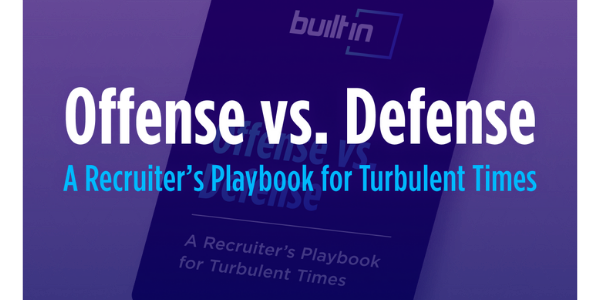How valuable can a 15 minute phone call be? If you’re a recruiter, the answer is more than you probably think.
As the pandemic has forced people to stay at home, phone interviews have become a bigger part of the hiring process. But phone interviews have long been a standard practice for recruiters — they offer interviewers the chance to screen their candidates before having them move forward in the application process. Though they aren’t as formal as an in-person or video interview, phone interviews are equally as important, and in some ways, even more challenging. Recruiters have to make a lot of make-or-break decisions based on their first impression of a candidate, but there’s only so much that you can glean about a person by their voice alone.
But Jamie Johnson, a career advisor at University of Phoenix, said that for all their hurdles, phone interviews also provide a lot of opportunities that video or in-person interviews don’t.
HOW TO PREPARE FOR A PHONE INTERVIEW
- Create a distraction-free environment
- Set up a clear agenda and interview schedule
- Start with small talk
- Watch for verbal cues
- Map out your next steps
“In a phone interview, your voice is your connection. So choosing how you present yourself vocally is very important,” she said. We’re used to forming more serious connections with people face-to-face, but Johnson says recruiters shouldn’t see a phone interview as lesser than other forms of communication. In fact, they can actually be a chance to bond with a candidate on a different level.
“You don’t have the distraction of looking at the candidate or trying to make sure you’re on camera,” she said. “You can just listen to their story.”
Whether you’re doing a simple phone screen or looking to have a more serious phone interview, you’ll need a well-baked strategy to make your phone interviews as productive as possible. Here are a few tips from experts on how to get the most out of your next remote phone interview.
Free Playbook: Recruiting in Turbulent Times. Download Here.

Create The Right Environment
Whether you’re in the office or at your house, you need to be in a distraction-free environment when conducting a phone interview. If you’re working remotely, it might not be easy to find the same quiet and empty space as you would in the office but it’s still possible to cultivate a space free from distractions so you and the candidate can focus on the interview.
“You want to make sure that you’re in a good place to receive a call and hear your candidate fully,” Johnson said. “Hopefully you’re not in a local coffee shop interviewing a candidate.”
If this task is difficult or you foresee disruptions occurring during the interview, be upfront with the candidate about that so they don’t get thrown off guard and the conversation isn’t derailed. They will appreciate the transparency and be more apt to share any distractions they may encounter while participating in the interview at home.
“You want to make sure that you’re in a good place to receive a call and hear your candidate fully.”
“I worked with a recruiter once, and in the middle of our virtual meeting, three cats jumped in front of the computer. We just laughed and had a good time with it,” said Johnson. “We have our own personal lives, and sometimes they happen in the midst of our business. So we handle it gracefully, and focus on the positive.”
Think About How You'll Take Notes
When interviewing candidates in-person, you don’t have to worry about finding a way to take notes without distracting the candidate since they’re able to see exactly what you’re doing and can accommodate pauses in the conversation. On the phone, however, body language is eliminated.
Think through your note taking strategy before you conduct a phone interview. It might be best to go old school with a paper and pen or maybe you prefer typing out your notes during the call. When you decide, let the candidate know that a delayed response is just your attempt to take thorough notes.
“Once you have your questions ready to go, you’ve got to either have an electronic way to record or a piece of paper to keep notes on,” said Johnson. “Then you can move on to your next candidate and submit those notes to the hiring manager.”
If you choose to type out your notes, make sure you know how to mute yourself when the candidate is talking so there isn’t constant noise in the background. Ask candidates for their permission ahead of time if you plan to record the phone call for transcription purposes later on.

Set A Clear Agenda And Schedule
Since you’ll likely be conducting more than just a phone screen, it’s important you prepare a clear agenda for each phone interview. Your agenda should include the key questions you need to ask and important information you need to collect from the candidate during the call. This will keep you on track during the phone interview to make sure you cover all of the information you need.
Additionally, you should set an agenda that can be shared with the candidate prior to the call. Providing details upfront that answer any questions they may have will create the right environment for a productive phone interview before it even gets started.
“We actually include salary ranges in the invite to our phone screen, so that candidates are empowered to opt in or out based on that info,” said Samantha Strube, head of people at Indianapolis-based environmental compliance software company Encamp.
“Talking to more than one person can be a tad overwhelming for a candidate.”
Traditionally when candidates come to the office for in-person interviews, they meet with multiple people at your company. In a remote phone interview, that’s much harder to do. To solve this problem, you must think strategically about scheduling and find ways to keep it as easy for the candidate as possible. Set up a conference call line that the candidate can stay on and the different interviewers can jump on and off as needed. Having a five-minute window between interviews is a great buffer to keep people on schedule and allow the candidate time to regroup before each interview.
“I am a big fan of panels, but talking to more than one person can be a tad overwhelming for a candidate,” Strube said. “I recommend no more than a 3:1 ratio of interviewers to candidates.”
Make Time For Small Talk
Candidates will understandably be nervous about the interview and you should try to ease this feeling as much as possible. Making room for a few minutes of small talk will not only reduce a candidate’s nerves but also give you insight into their personality.
“People want to work with people they know.”
While you shouldn’t spend too much time on small talk, you need to make time to get to know the candidate outside of just their professional experience. It will give you a sense of how the candidate might fit into your existing company culture.
“People want to work with people they know,” said Johnson. “If you can make that connection with your candidate immediately, you’ll get an inside scoop on that individual and it will help you market yourself as a good fit for them.”
Be Aware Of Verbal Cues
A major element you miss out on in a phone interview is body language. This can traditionally help indicate how the interview is going and also signal when the candidate may have a question. During a phone interview, be conscious of the fact that this element is missing and watch out for verbal cues from a candidate.
“I think it can be more challenging to exude passion over the phone but not impossible.”
“I think it can be more challenging to exude passion over the phone but not impossible. I recommend that interviewers create an opportunity for candidates to talk through their passions first so that they can be their authentic selves,” said Strube. “I also like to look for candidates who exude humble confidence. Pausing and reflecting is not a downside to me — it shows analytical thinking and thoughtfulness.”
Leave time after you’ve spoken to allow the candidate to jump in with follow-up questions or further comments. If you’re struggling to identify verbal cues, ask the candidate throughout the interview if they have any questions before you move onto the next topic.

Highlight Your Company Culture
During an in-person interview, candidates get a sense of what your office environment is like and experience your company culture firsthand. Since this isn’t an option during a phone interview, focus on weaving in descriptions of your culture throughout the conversation.
“It’s crucial for recruiters to represent their culture in how they lead the call,” Strube said. “If there’s a strong candidate, you’re going to be hustling to bring them on board. You want to do everything you can to make the company appealing and interesting to the candidate.”
“It’s crucial for recruiters to represent their culture in how they lead the call.”
A candidate may need a little more convincing to work for you because they are missing this key element. Highlighting specific examples of how your culture exists in the workplace will give them a better sense of what working for you would be like. Make culture a key point of discussion, talk about your core values and ask candidates if they have specific questions about your work environment.
“You should also make sure that your website is really doing your company justice,” said Strube. “I’d recommend sharing some links and directly saying ‘we want to make sure you know us and our culture even though you won’t be engaging with us personally — here’s where you can get some insights and some directly from employees themselves.”

Plan For Next Steps
It’s rare for a company to hire a candidate based on a phone interview alone. Instead, Johnson said that recruiters should approach phone interviews as initial screenings, and make a plan for what next steps need to be taken after completing one.
“The initial interview is always a screening interview,” said Johnson. “That’s why it’s pivotal for both the recruiter and the candidate to make the most of that time — you have 15 to 20 minutes to decide whether to move forward.”
Even before you’ve ended the phone call, decide on the appropriate next steps after the conversation. For example, if this is a second interview and the next step is for the candidate to complete a coding skills test, you should have talking points ready to notify them about this project. Finish the phone interview by letting your candidate know what they can expect from you, and what is expected from them moving forward.
Even if you aren’t interested in pursuing the candidate further, you should still plan to notify them of what will happen next; whether that’s an email giving them the news or telling them on the call directly.
“One rule we live by is ‘ain’t no ghosting in this camp’,” Strube said. “If you’ve spoken with us, you get a reply or next step within five business days. Full stop.”
Phone interviews at various stages of the hiring process may not be your first choice, but they are still a great opportunity to connect with candidates remotely and keep your hiring process going. Don’t forget the standard steps you’d take in an in-office interview process; these best practices are meant to be an addition to your current strategy, and will help you have a successful phone interview at every stage of the hiring funnel.
Free Playbook: Recruiting in Turbulent Times. Download Here.
This story was published by Shelby Eversole in 2020 and updated with additional reporting by Sunny Betz in 2021.




